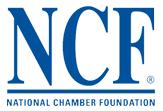 [5]US Chamber of Commerce Foundation,
[5]US Chamber of Commerce Foundation,
It wasn’t long ago when a person in the United States could make a middle class living as long as he or she had an alarm clock and a good work ethic. These jobs often required routine work where a person didn’t need to have broad skill sets to earn a decent living. But, times have changed.
As technology becomes ubiquitous in our everyday lives, its impact on the modern day workplace demands workers in routine positions develop skills that are marketable in today’s economy. Simply put, technology can now do much of the routine work traditionally performed by workers.
In an article [6] for Business Insider, Gus Lubin lists the jobs that are disappearing fast in the U.S. because of technological advancements.
The top ten are:
- Bookkeeping, accounting and auditing clerks
- Cooks, fast food
- Postal service mail carriers
- Executive secretaries and executive administrative assistants
- Farmworkers and laborers, crop, nursery, and greenhouse
- Sewing machine operators
- Tellers
- Postal service mail sorters, processors, and processing machine operators
- Cutting, punching, and press machine setters, operators and tenders, metal and plastic
- Switchboard operators, including answering service
One thing we know for sure is technology will continue to impact the workplace. This reality means that workers need skills that are in demand and are transferable to a range of occupations. Workers need to manage their risk in the marketplace by continuously skilling up to the needs of the 21st century economy.
To help raise awareness of this issue, the U.S. Chamber of Commerce Foundation has partnered with Working Nation to educate the American public about the changing world of work, foster a widespread movement to meet this challenge, and showcase scalable solutions to the changing employment demands.
Working Nation launched the “Future Proof Quiz”, [7] a public survey that helps users understand their own current and future employability risks. In the coming months, WorkingNation will begin premiering a series of original programming from award-winning directors and producers that investigate the many aspects of the growing employability gap in the United States and ways to close it.
The good news is that job openings are at an all-time high [8], so there is work to be had. The challenge is to get more people the skills employers are looking for—skills for tomorrow. That’s what we are working on.
To learn more, visit WorkingNation.com [9].